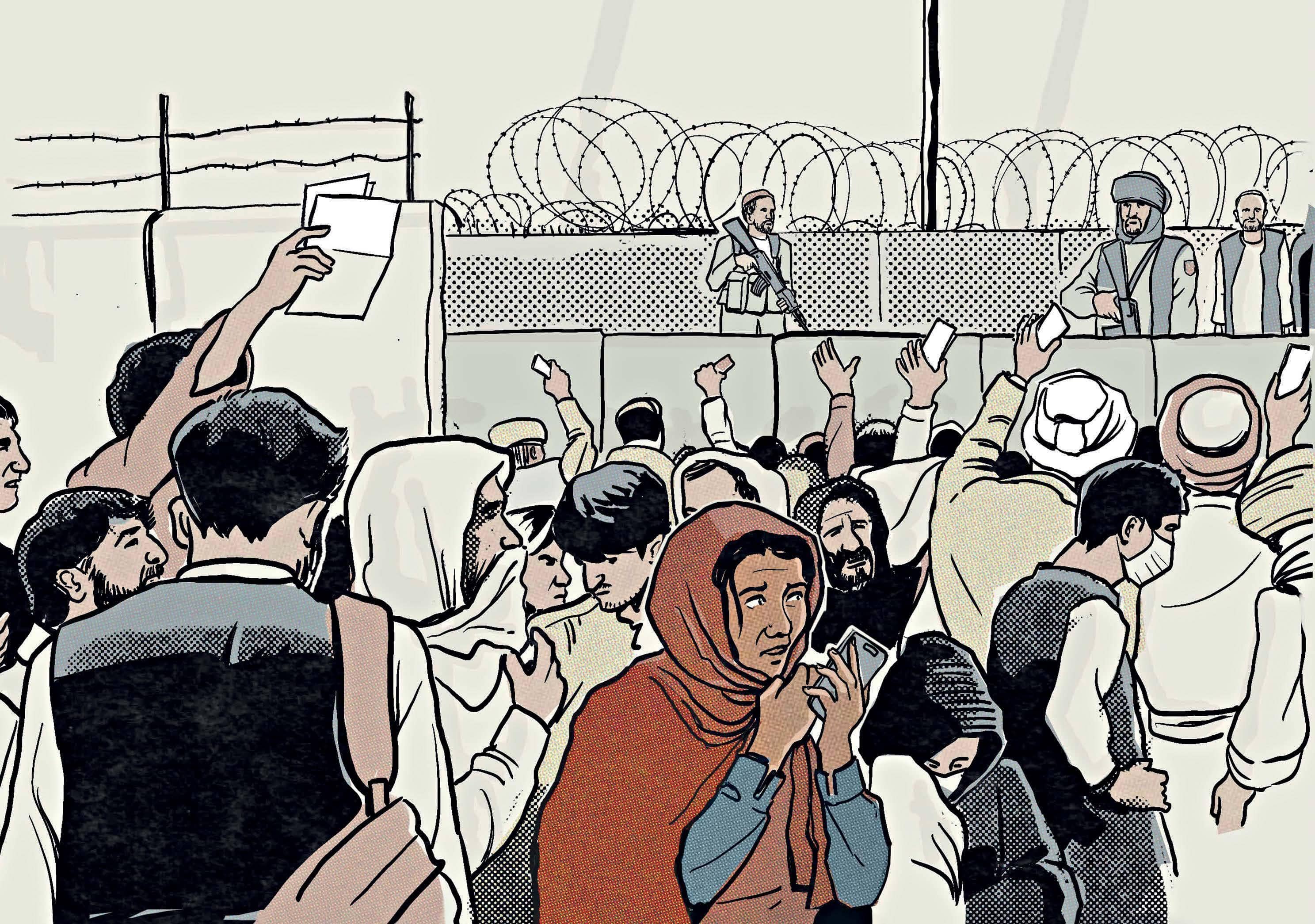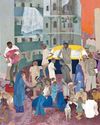
THE DAY KABUL FELL
FATEMA HOSSEINI: It seems impossible that civilization can be knocked back a few decades in an afternoon, that life as you know it can collapse before lunch, but it did.
Sunday morning, 15 August 2021, began like most any other day. I picked up warm naan from the bakery and headed to the office in my usual jeans, dress, scarf, and sneakers. The streets were crowded. Hundreds of vendors spilled into the road hawking vegetables and fruits over loudspeakers: "Apple! Melon! Mango!" I weaved through their carts among women in colourful dresses. Kabul must be one of the loudest cities on earth.
I passed my favourite restaurant, Taj Begum, always brimming with hookah mist and laughter. It is named for an Afghan warrior princess and owned by the fiercest woman in Kabul. She drives through the streets shouting at the other drivers, nearly all of them men.
In the office of the Etilaat-e-Roz news agency where I work, phones were ringing as the Taliban advanced toward Kabul, on the cusp of taking over the government.
My mother called me, crying. "Put on your long dress. The Taliban are everywhere." She, my father, my brother, and my baby sister were staying in my small apartment after the Taliban had ransacked their home in Herat. She was now scared for me. I should have been, too. I was 27, a bad Muslim, as far as the Taliban might be concerned: an educated single woman who asked too many questions and rarely wore a hijab, a veil that covers the hair, neck and shoulders. I was a working journalist, a member of the oppressed Shi'a Hazara ethnic group, daughter of an Afghan national soldier. To a Taliban fighter heady with new power, silencing my voice would be a golden step on the stairway to paradise.
"Mom, it's OK. My dress is not that short!"
She started shouting. "You're not listening to me!"
This story is from the {{IssueName}} edition of {{MagazineName}}.
Start your 7-day Magzter GOLD free trial to access thousands of curated premium stories, and 9,000+ magazines and newspapers.
Already a subscriber ? Sign In
This story is from the {{IssueName}} edition of {{MagazineName}}.
Start your 7-day Magzter GOLD free trial to access thousands of curated premium stories, and 9,000+ magazines and newspapers.
Already a subscriber? Sign In

BOOKS
Books review

STUDIO - Off Lamington Road by Gieve Patel
Oil on Canvas, 54 x 88 in

NEWS FROM THE WORLD OF MEDICINE
FOODS THAT FIGHT DEMENTIA

TO HELL AND BACK
The Darvaza crater in Turkmenistan is known as the Gates of Hell. I stood on its edge - and lived to tell the tale

THE SNAKE CHARMERS
Invasive Burmese pythons are squeezing the life out of Florida's vast Everglades. An unlikely sisterhood is taking them on

Sisterhood to Last a Lifetime
These college pals teach a master class in how to maintain a friendship for 50-plus years

...TO DIE ON A HOCKEY RINK
ONE MINUTE I WAS PLAYING IN MY BEER LEAGUE, THE NEXT I WAS IN THE HOSPITAL

Just Sit Tight
Broken, battered and trapped in a ravine for days, I desperate driver wonders, \"Will anyone find me?\"

Allow Me to Mansplain...
If there's one thing we know, it's this: We're a nation of know-it-alls

THE BITTER TRUTH ABOUT SUGAR (AND SUGAR SUBSTITUTES!)
It's no secret that we have a serious addiction. Here's how to cut back on the sweet stuff, once and for all.